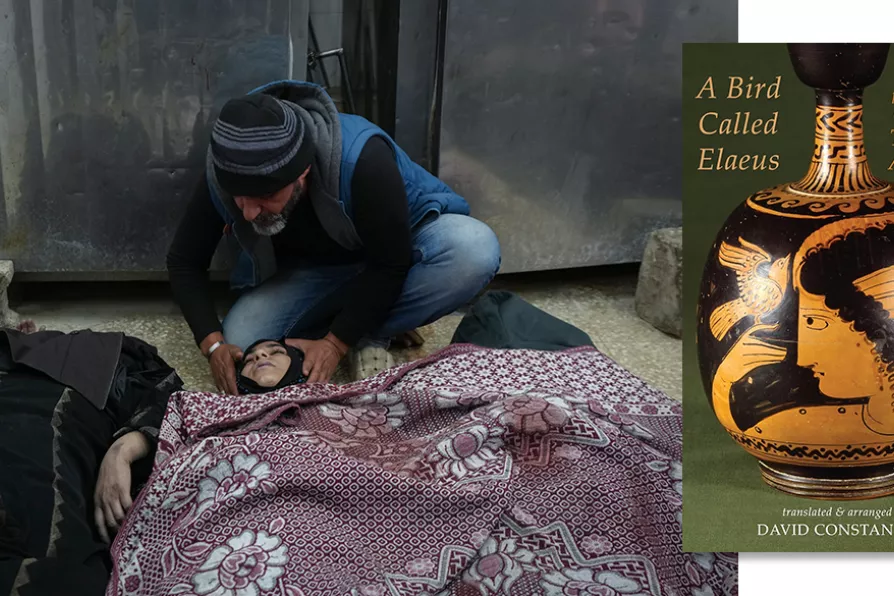JOHN GREEN is intrigued by the ethereal, ghostly quality of images of a London unobscured by the bustle of humanity
Truth is concrete
MEIC BIRTWHISTLE speaks to David Constantine about the fascination he shares with Brecht for the material exactness of Greek poetry

 FACT: Relative mourns over the body of a child, one of three people crushed to death earlier in front of a bakery, at the hospital in Deir al-Balah, Gaza Strip, Friday Nov.29, 2024. Two children and a 50-year-old woman were crushed to death Friday as a crowd of Palestinians pushed to get bread at a bakery in the central Gaza town of Deir al-Balah, medical officials said.
[AP Photo/Abdel Kareem Hana]
FACT: Relative mourns over the body of a child, one of three people crushed to death earlier in front of a bakery, at the hospital in Deir al-Balah, Gaza Strip, Friday Nov.29, 2024. Two children and a 50-year-old woman were crushed to death Friday as a crowd of Palestinians pushed to get bread at a bakery in the central Gaza town of Deir al-Balah, medical officials said.
[AP Photo/Abdel Kareem Hana]
A Bird Called Elaeus - Poems for Here and Now from The Greek Anthology
David Constantine, Bloodaxe books, £12
A Bird Called Elaeus is the socialist poet and translator David Constantine’s latest book. It follows his co-translation (with Tom Kuhn) of the Collected Poems of Bertholt Brecht.
In an exclusive interview with the Morning Star, he explains why he was inspired by this ancient Greek anthology.
What is the history of this collection?
Similar stories

RUTH AYLETT recommends two anthologies: one that bears witness to refugee and immigrant experiences, and the other to our political relationship to water

A pamphlet by British Latinx poet Patrick Romero McCafferty, poetry by Anglo-Argentinian Miguel Cullen, and a book of conjuring poems by Mexican Pedro Serrano

LEO BOIX reviews Cuban poet Carlos Pintado; Mexican poet Diana Garza Islas; Mexican American writer and critic Rigoberto Gonzalez; and Brazilian poet Haroldo de Campos

LEO BOIX selects the best books of fiction, poetry, and non-fiction written by Latinx and Latin American authors published this year










